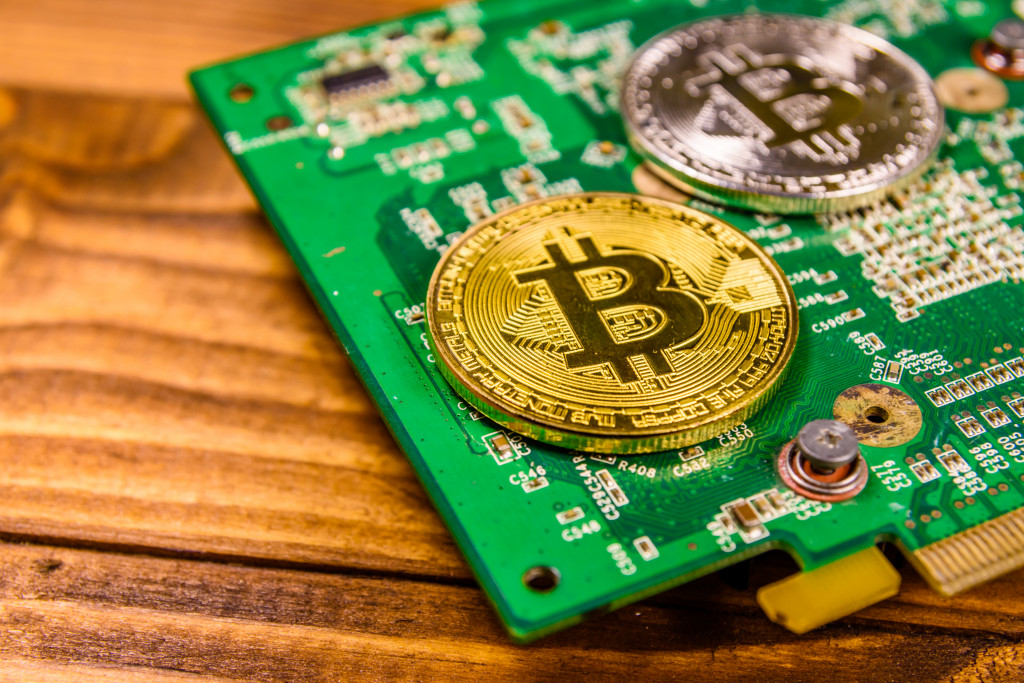In recent years, there’s been a lot of buzz around cryptocurrency and non-fungible tokens (NFTs). Just recently, news about how FTX, a crypto-trading network valued at $32 billion, crashed. So, what exactly are crypto and NFTs? And why are they so popular? Here are the basics about cryptocurrency and NFTs. Keep reading, and by the end, you should know enough about it to decide whether you want to wade deeper into the world of blockchains.
What’s a Blockchain?
A blockchain is a digital ledger that records all cryptocurrency and NFT transactions. It’s decentralized, meaning it isn’t subject to government or financial institution control. Every member of the network has the exact copy of the data on the blockchain. In this system, there is no need for trust since everyone has the same data; tampered or corrupted data can be easily verified or rejected.
The most well-known type of blockchain is the Bitcoin blockchain, which was created in 2009. Since then, thousands of other blockchains have been created.
What is Cryptocurrency?
Cryptocurrency is a digital or virtual currency. What makes it unique is that it uses blockchain as a cryptographic technique to secure and verify its transactions. It is decentralized, which means it isn’t subject to government or financial institution control—like the blockchain, members of the network maintain the digital ledger. Bitcoin by far is the most well-known kind of cryptocurrency.
What is an NFT?
An NFT is a non-fungible token. Unlike cryptocurrency, which can be exchanged for other cryptocurrencies or fiat currency, NFTs are unique digital assets that can’t be replaced by anything else—it’s why it’s non-fungible. NFTs are stored on a blockchain—a digital ledger that records all NFT transactions. The most well-known types of NFT are probably the CryptoKitty, a digital cat that was created in 2017, and the Bored Ape released in 2021.
Why Are They So Popular?
Cryptocurrency and NFTs are both relatively new technologies, which makes them appealing to early adopters and people who are interested in new technology trends. They’re also popular because they offer users a certain degree of anonymity and privacy. And because they’re decentralized, they’re not subject to government or financial institution control—which some people see as a good thing.
Are They Reliable?
Cryptocurrency is somewhat volatile—its value can go up or down quite a bit in a short period of time. For example, Bitcoin’s value reached an all time high in November 2021, with 1 bitcoin amounting to $68,000 but fell in value over the summer. Even though it has fallen a lot since then, it is remaining more stable at its current value. So, if you’re thinking about investing in cryptocurrency, you should be prepared for some ups and downs.
As for NFTs, their future value is harder to predict because the market is still so new. They’re also much harder to trade and value simply because of their uniqueness. Their popularity also dictates a lot about their value, just like meme stocks. However, some people believe that NFTs will become more valuable over time as more people use them and as technology improves.

Should You Invest in Them?
Whether or not you should invest in cryptocurrency or NFTs is ultimately up to you. Cryptocurrency can be mostly treated as an investment, but NFTs are different. Some NFTs are great for investments, while many others are mostly for personal satisfaction. If you do decide to invest in them, make sure to do your research first. Most importantly, don’t invest more than you can afford to lose.
How Do You Watch Over Your Portfolio?
Like other things, spending money on cryptocurrency and NFTs can be an investment. As such, you have to watch over your portfolio like you watch over stocks and investments. You can simply wait for them to inflate in price before selling them. You have to look at market trends too, so that you can buy or sell at the best times. You can also hire crypto asset managers or NFT managers if you have the money, or you can simply pay for crypto and NFT management platforms. Many of these work both ways; if you intend to start your own blockchain or NFT line, you can consult their help or use the same products.
Apart from these, here are the basic precautions for your crypto and NFT portfolio:
- Make sure your computer is virus-free and has up-to-date security software installed.
- Create a strong password and don’t use the same one for all your accounts.
- Store your cryptocurrency and NFTs in a cold storage hardware wallet, preferably offline to keep it inaccessible to hackers.
- Be aware of scams and fraudulent activities. Don’t give away your personal information or money to anyone you don’t trust.
- Keep track of your portfolio and make changes as needed. Don’t overinvest or put all your eggs in one basket.
Final Thoughts
Cryptocurrency and NFTs are two relatively new technologies that have been gaining popularity in recent years. Cryptocurrency is a digital or virtual currency that uses cryptography to secure its transactions and is decentralized, meaning it isn’t subject to government or financial institution control. An NFT is a non-fungible token—a unique digital asset that can’t be replaced by anything else—that’s stored on a blockchain. Both crypto and NFTs offer users a certain degree of anonymity and privacy and are appealing to early adopters and people who are interested in new technology trends. However, crypto is somewhat volatile—its value can go up or down quite a bit in a short period of time—and the future value of NFTs is hard to predict because the market is still so new. Whether or not you should invest in cryptocurrency or NFTs is ultimately up to you, but if you do decide to invest in them, make sure to do your research first, and don’t invest more than you can afford to lose.
